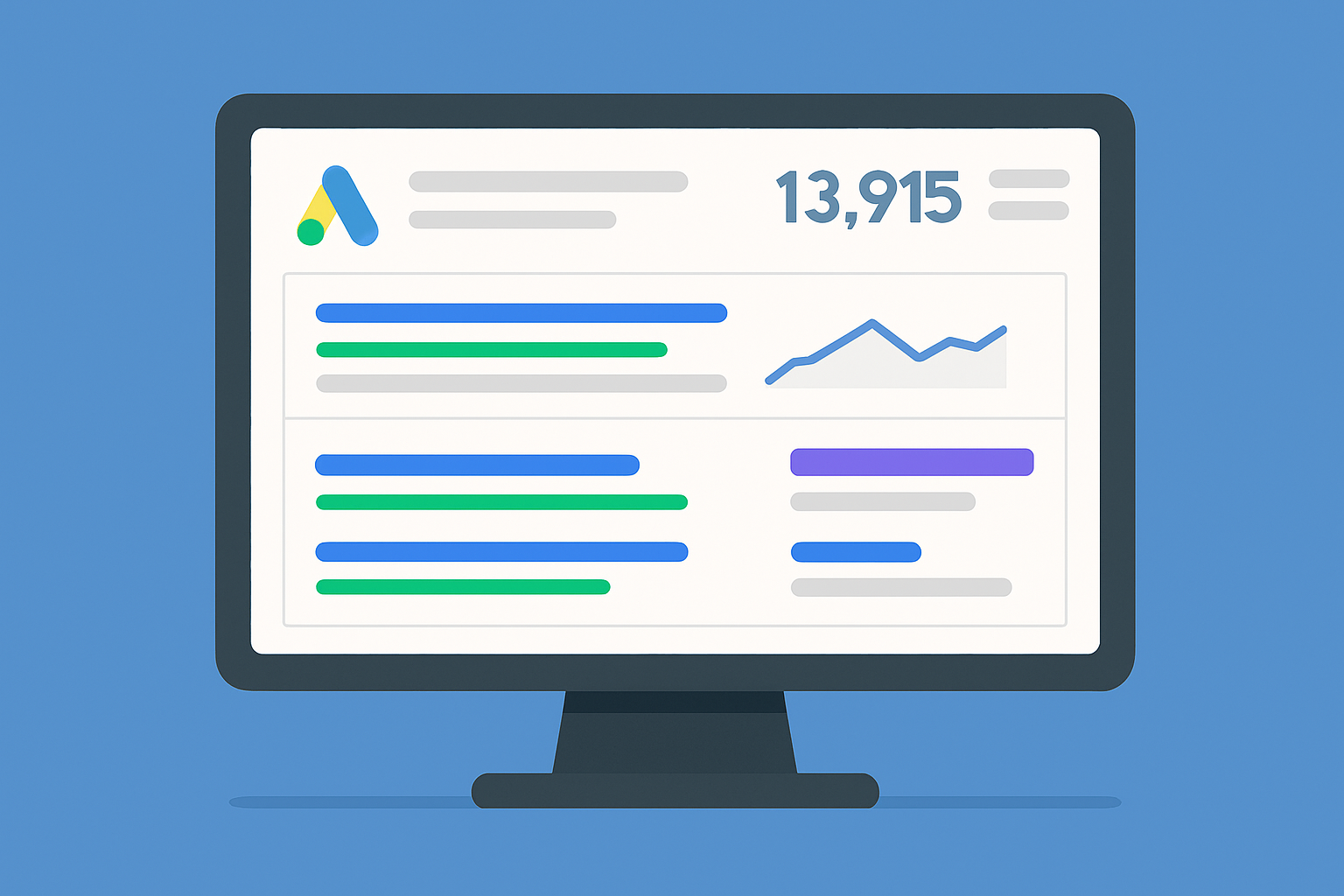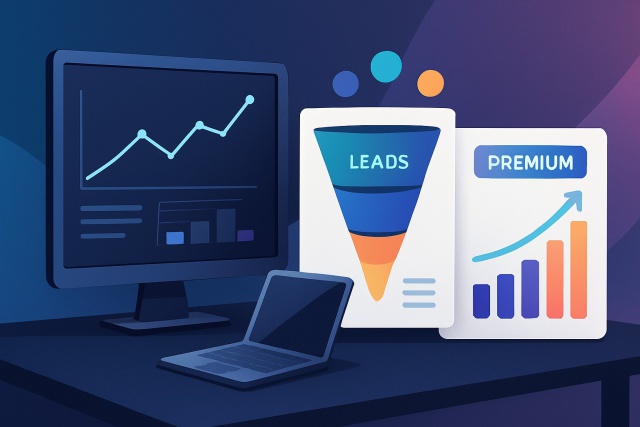AdWords PPC Management for Small Business Success


For small businesses eager to grow fast and carve out a solid spot online, Google AdWords PPC management can be a real game-changer. It connects you with potential customers right when they’re hunting for what you offer. Pay-per-click advertising delivers clear instant results by putting your brand front and center for searchers ready to take action. Nailing success takes savvy management—careful planning, spot-on targeting and constant tinkering—to stretch your budget as far as it will go without wasted effort.
Getting to Know AdWords PPC Management A Quick Dive Into the Essentials
AdWords PPC management is all about juggling and fine-tuning your Google Ads campaigns to make sure your ads land in front of the right people while squeezing out the best bang for your buck. It revolves around pay-per-click advertising, where you’re essentially bidding on keywords and only shelling out cash when someone actually clicks your ad—a real win-win.
- Cost per Click (CPC) is what you shell out each time someone takes the bait and clicks on your ad.
- Keywords are magic search terms that make your ads pop up in front of the right eyeballs.
- Ad Copy is the catchy text or media that bring your advertisement to life and grab attention.
- Landing Pages are spots where users land after clicking your ad, and they play a important role in turning casual visitors into customers.
- Bidding Strategies are crafty ways you manage your budget to win those coveted ad placements without breaking the bank.
- Quality Score is Google's little report card on how relevant your ads are, impacting both what you pay and where your ad sits.
- Conversion Tracking is your behind-the-scenes detective, helping you see exactly what actions users take after clicking your ad and giving you the lowdown on how well you’re doing.
Why Nailing AdWords PPC Management Really Matters for Small Businesses
Small businesses often face tighter budgets and fierce competition but PPC is a handy tool to tackle these challenges head-on. By focusing on geographic targeting and fine-tuning keywords they can connect with local customers in a way that really hits the mark. Smart AdWords PPC management plays a vital role here — it optimizes spending and boosts ad relevance while delivering quick measurable results.
- When you are working with a tight advertising budget, you really have to keep a close eye on bids and spending to avoid wasting money.
- Going head-to-head with bigger players means that choosing the right keywords and audiences is absolutely vital because you can’t just wing it.
- Zooming in on local or niche audiences often gives you an advantage over broader, less focused competitors.
- Getting your campaigns off the ground quickly and gathering fast data feedback can seriously speed up delivering results since no one wants to wait around forever.
- PPC campaigns usually offer clear ROI tracking. In my experience, this makes it much easier to justify where you put your money.
- Staying flexible is key because it lets you pivot quickly based on what the performance data is telling you and keeps you ahead of the game.
How to Set Up Your AdWords PPC Campaign for Success (Without Losing Your Mind)
Getting a PPC campaign off the ground usually starts with having clear goals and a well-organized account and a sensible budget you can stick to. Setting up your Google Ads account and zeroing in on what you really want to achieve lays the foundation for results you can actually track. Arranging your campaigns and ad groups in a straightforward logical way also helps.
Clearly define your campaign goals so you’ve got a solid north star guiding every choice.
Roll up your sleeves and dig into keyword research to uncover terms that resonate with what you offer and the individuals you want to reach.
Nail down a monthly budget that makes sense by balancing your business goals with cash flow.
Choose the campaign type that fits your style and needs best whether that’s Search, Display or Shopping.
Dial in your targeting options to ensure your message lands exactly where it should.
Craft focused ad groups with related keywords and tailor-made ads for each group so everything feels like it’s speaking directly to your target audience.
Finding the Right Words to Make an Impact with Keyword Research and Selection
Effective keyword research is absolutely key when it comes to running successful PPC campaigns. Small businesses really hit the sweet spot by focusing on keywords that attract customers who mean business, while also steering clear of overly crowded spaces. By leaning on dedicated keyword research tools, businesses can unearth those golden keywords that not only boost ROI but also line up neatly with what they actually offer.
- Use keyword tools like Moz Pro or Mangools KWFinder to uncover useful search terms that really hit the mark.
- Take a close look at your competitors' keyword strategies to find gaps and fresh opportunities you might have missed.
- Focus on long-tail keywords because they are usually more specific and often easier on the budget.
- Don’t forget to add negative keywords since they help keep your ads out of unrelated searches that would waste your time and money.
- Include some local keywords to connect with nearby customers and boost both relevance and those all-important conversions.
How Negative Keywords Can Save You from Wasting Dollars (and Sanity)
Adding negative keywords is a smart move to stop your ads from popping up in unrelated or low-value searches.
Crafting Ads That Truly Click with Small Businesses
Your ad copy has got to catch your audience's eye right off the bat by shining a spotlight on clear benefits and crafting headlines that really pop. It should also slip in calls to action that people just cannot ignore.
- Craft headlines that truly grab attention and resonate with what users want.
- Highlight clear benefits or unique features that make your offer stand out.
- Wrap it up with a compelling call-to-action that nudges users to take the next step.
- Sprinkle in relevant keywords to boost ad relevance and improve your Quality Score.
- Add ad extensions like call buttons, site links and location details to make your ad more tempting to click.

Google Ads dashboard displaying examples of effective ad copy with extensions and performance insights.
How to Sharpen Your Landing Pages and Give PPC Results a Real Boost
Your landing page is really the unsung hero when it comes to turning casual visitors into paying customers. Key design elements like lightning-fast load times and crystal-clear messaging that matches perfectly with your ads and layouts that work well on mobile devices often boost conversion rates and your Quality Score.
- A clear headline that shines a spotlight on your ad's promise really helps build user trust from the start.
- Keep your copy concise and persuasive because that is the nudge visitors need to jump on board and take the action you want.
- Fast loading times are not just nice to have. They keep visitors hooked and lower the risk of them clicking away early.
- Designing your site with mobile users in mind means you are reaching people wherever they are on any device.
- A clear stand-out call-to-action gently guides users down the path to conversion without any guesswork.
- Honest reviews and heartfelt testimonials plus security badges all contribute significantly to boosting your site's credibility.
Practical Strategies for Bidding and Managing Budgets You Can Actually Use
Picking the right bidding strategy is key for managing costs and getting the best ROI. You might want to go with manual CPC bidding if you like direct control over your bids—it’s like steering your own ship. On the flip side, automated options like enhanced CPC and target CPA rely on Google’s algorithms to do the heavy lifting and fine-tune your results without blowing your budget.
| Strategy Name | Description | Best Use Case | Pros | Cons |
|---|---|---|---|---|
| Manual CPC | You set the maximum bid for each keyword yourself, no autopilot here. | Perfect when you want to keep a tight grip on your budget without surprises. | Allows for precise bid control and is pretty straightforward to adjust on the fly. | Can be a bit of a time sink and definitely needs your regular attention. |
| Enhanced CPC (ECPC) | Google tweaks your manual bids behind the scenes to snag more conversions. | Great for those who want a little automation without handing over the keys entirely. | Strikes a nice balance between hands-on control and smart automation; helps optimize bids smoothly. | You lose some direct control and, heads up, costs can creep up a bit. |
| Target CPA | Automatically adjusts bids to keep your cost per acquisition nice and steady. | Best suited for campaigns laser-focused on driving conversions. | Focuses squarely on conversions and takes a load off your budget management. | Requires enough conversion data to get going and has a bit of a learning curve upfront. |
Tracking, Evaluating, and Improving Campaign Performance the nitty-gritty of turning good campaigns into great ones
To keep campaigns firing on all cylinders and even nudge them toward better performance, regular monitoring is a must. Be sure to set up conversion tracking early on so you don’t miss catching those key user actions. Then take a good look at metrics like click-through rates (CTR), cost-per-click (CPC) and conversion rates—they’re your best friends in spotting what’s working.
Set up conversion tracking in Google Ads or through Google Analytics so you can keep a close eye on the actions that are crucial without guesswork.
Make it a habit to regularly check key metrics like CTR, CPC, conversion rates and Quality Score because these numbers reveal how your campaigns are really performing.
Roll up your sleeves and conduct A/B tests to compare different ads and landing page designs. Sometimes the results might surprise you.
Use the performance data as your trusty guide to tweak bids and fine-tune keywords for maximum impact.
Keep your keyword list fresh by adding new terms that show promise and removing those that no longer pull their weight.
Rinse and repeat this optimization cycle consistently like a gardener tending plants to see steady and sustained improvements over time.
Frequent PPC Mistakes Small Businesses Often Make (and How to Dodge Them)
Small businesses often hit the same rough patches such as skipping detailed keyword research or juggling budgets only to overspend. They also turn a blind eye to Google's Quality Score factors or write ad copy that doesn’t spark clicks or conversions.
"One common stumbling block I’ve seen small businesses fall into with PPC is the idea that you can just set it up once and then sit back and relax. Truth be told, the real magic happens when you roll up your sleeves and keep optimizing based on a keen eye for the data and some savvy adjustments. That’s how you make every dollar count and keep a leg up on the competition." – PPC Expert Sarah Lindstrom
Growing and Enhancing Your PPC Campaigns with a Practical Approach
When your campaigns consistently turn a profit, it is worth considering a step up. Maybe bump up those budgets to cast a wider net, toss in fresh keywords to dip your toes into new markets, and experiment with more Google Ads features like the Display Network or YouTube Ads.
- Gradually ramp up budgets to reel in more traffic without letting costs spiral out of control.
- Give the Google Display Network a whirl to run banner ads that really catch the eye.
- Set up retargeting campaigns to gently nudge back visitors who’ve already dipped their toes in.
- Test fresh keywords regularly—sometimes the best audience segments are hiding in plain sight.
- Lean on automation tools to smooth out bid management and ad tweaks, saving you time and headaches.
Wrapping Up and What Lies Ahead for Small Business PPC Success
AdWords PPC management presents a solid opportunity for small businesses to grow in a clear and measurable way—connecting with customers ready to take action. By sticking to a straightforward game plan—setting specific goals, picking the right keywords, crafting eye-catching ads, fine-tuning landing pages and watching performance to tweak as needed—small businesses can get the most out of their investment and build steady momentum. Whether you are running the campaigns yourself or using handy tools like Moz Pro or Mangools for keyword research and analysis, the key is to stay alert and adaptable.
Unlock Digital Marketing Success with Moz
Struggling to optimize your online presence? Moz is the ultimate Internet Marketing solution, empowering businesses with powerful SEO tools, insightful analytics, and expert guidance. Elevate your digital strategies and outshine the competition.
- Boost organic traffic with data-driven SEO tactics
- Enhance content marketing with expert recommendations
- Gain a competitive edge with comprehensive link analysis








